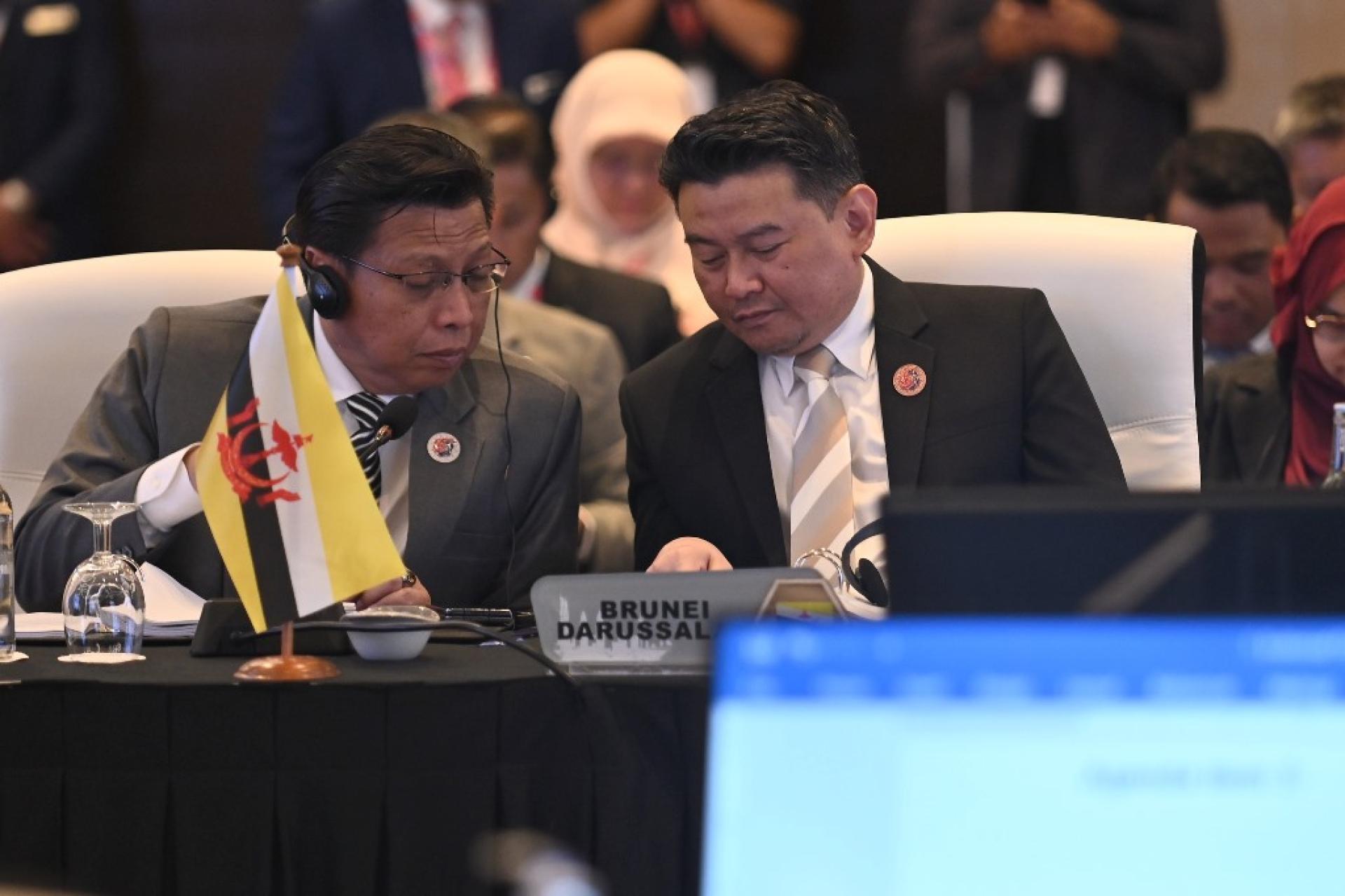(Bandar Seri Begawan, 12th) Following the first conviction under Brunei’s Trafficking and Smuggling of Persons Order, Brunei has called on source countries to play a greater role in preventing human trafficking.
Dato Seri Paduka Sufian, Deputy Minister (Security & Legal) at the Prime Minister’s Office, made the statement while delivering Brunei’s national address at the 19th ASEAN Ministerial Meeting on Transnational Crime (AMMTC), held in Malacca from September 10th to 11th.
The Brunei delegation also included senior officials from the Prime Minister’s Office and the Immigration & National Registration Department.
The Deputy Minister highlighted a labor trafficking case involving a Bangladeshi national, who was convicted on August 11, 2025, for fraudulently recruiting six compatriots for forced labor.
He stated that source countries also need to play a role by establishing screening procedures to ensure their citizens do not become victims of labor trafficking.
He also drew attention to the rising trend of cybercrime in Brunei, including online scams and the growing use of technologies such as artificial intelligence as tools for criminal activities.
The 19th AMMTC, hosted by Malaysia and chaired by Prime Minister Dato' Seri Anwar, provided a platform for ASEAN ministers and senior officials to discuss transnational crime issues, share best practices, and coordinate regional responses.
The meeting also held consultations with ASEAN dialogue partners such as China, Japan, and South Korea, reaffirming Brunei’s commitment to regional cooperation in security, law enforcement, and cybercrime prevention.
The main outcomes of the meeting included the adoption of 13 documents, including the "ASEAN Plan of Action to Combat Transnational Crime (2026-2035)", the "Melaka Declaration on Combating Transnational Crime", and the "ASEAN Declaration to Combat People Smuggling and Cybercrime".
Brunei's participation highlights its proactive stance in combating human trafficking and cybercrime, while also emphasizing the need for cooperation between sending and receiving countries to protect vulnerable groups.
